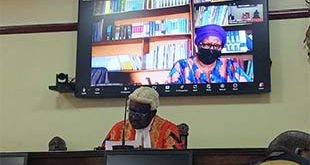
Kampala, Uganda | THE INDEPENDENT | Irene Namayanja is a Covid-19 survivor. The mother of two and businesswoman says that life has never been the same ever since she was diagnosed with the virus even after her full recovery. According to Namayanja, most of the people she used to interact with prior to contracting Covid-19 have kept away.
“Emikwano sitera gilaba, ela batya kilwadde,” she told URN in an interview. (I no longer see my friends. They fear the pandemic), Namayanja isn’t alone. Brian Aruho, a resident of Namugongo also says that he has had to go through counselling in order to keep a positive mindset because of the stigma associated with COVID-19 patients.
He says that his biggest challenge are the messages announcing the death of COVID-19 victims that do rounds on social media. According to Aruho, he was forced to self-isolate even after even after recovering.
Emmanuel Nicklaus Sekigwagwa, another COVID-19 survivor and resident of Nansana municipality says he and his brother contracted the virus but did not mention it to anyone beyond family in order to avoid being stigmatized.
“We didn’t tell anyone,” Sekigwagwa said in a WhatsApp message to our reporter. Edirne Mukalazi, a teacher of Literature and English at Insula Secondary School in Kitasiba village in Kyotera district on Mutukula highway says that the mandatory isolation made him an outsider in his village and he nearly starved to death. “When I came back home after testing positive for COVID-19, my immediate neighbour locked herself and her children inside their house,” Mukalazi said.
He explained that being shunned by the community was overbearing but understandable. Dr. Gloria Seruwajji, a behavioral scientist at Makerere University explains that the communities lack knowledge about virus due to lack of sensitization. She also notes that social workers who would play a huge part in sensitizing communities were left out of the essential category and therefore cannot help educate the masses in order to reduce the stigma.
COVID-19 spreads through contact with the droplets of an infected person. WHO recommends the regular use of facial masks, hand washing, sanitizing and physical distance to avoid infection.
*****
URN
 The Independent Uganda: You get the Truth we Pay the Price
The Independent Uganda: You get the Truth we Pay the Price


